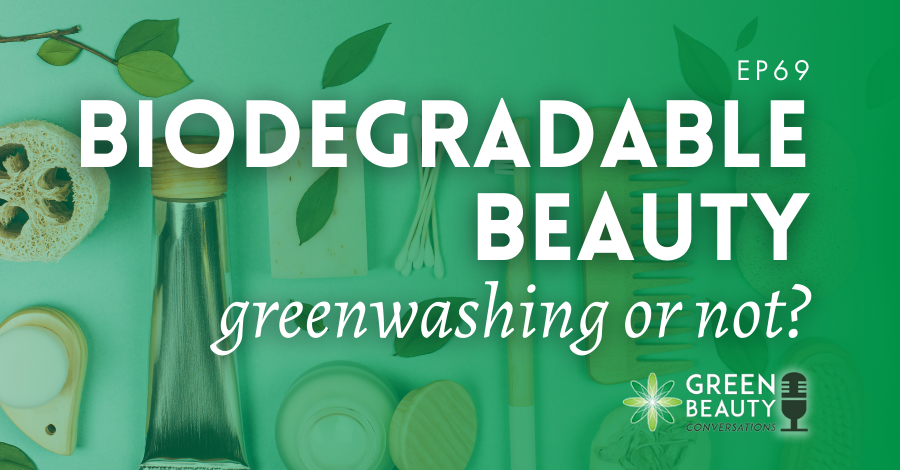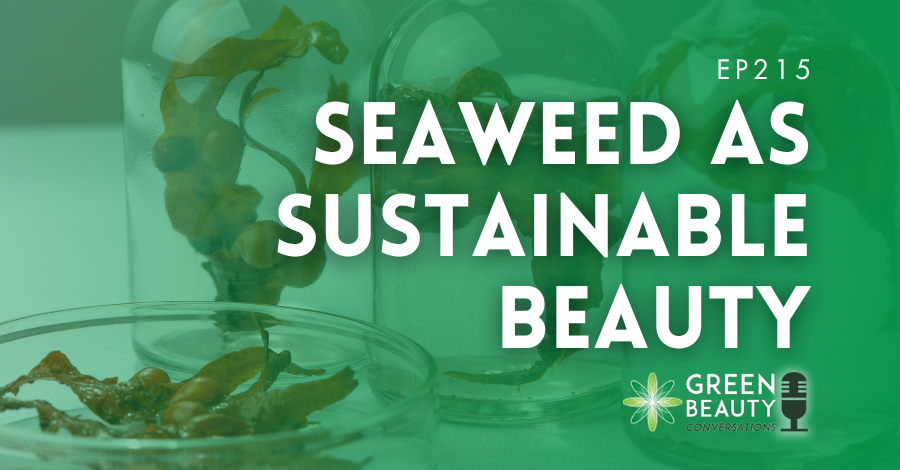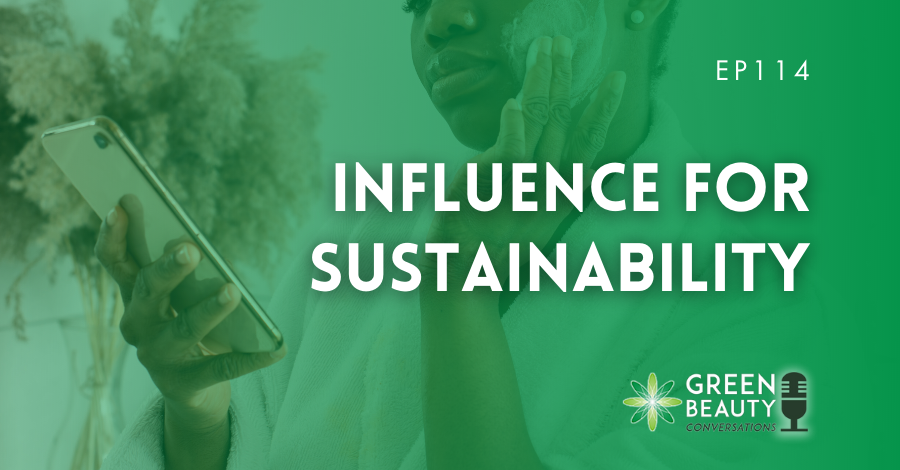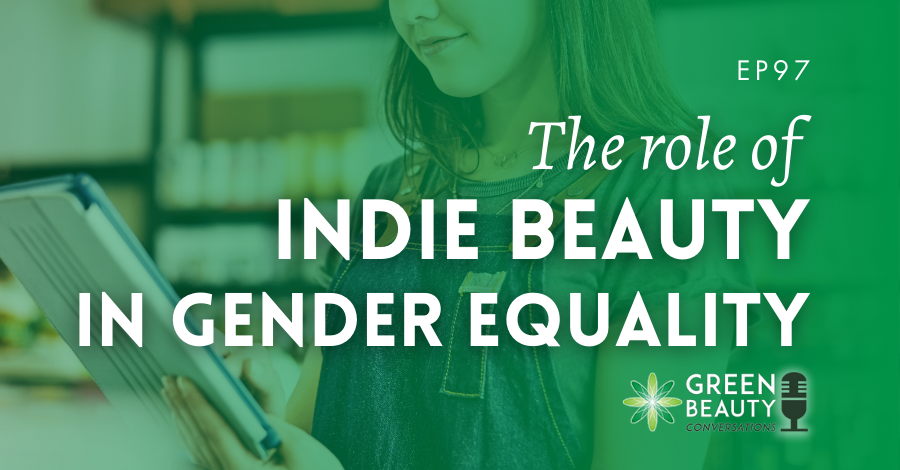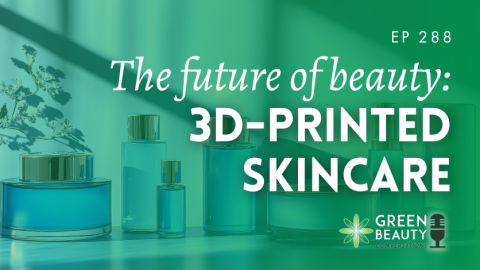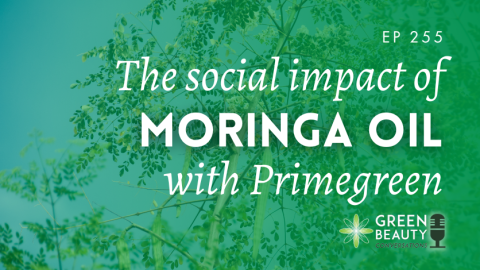Biodegradable is a common label today on consumer packaging but what exactly does it mean? After all, everything can biodegrade over time, although it might take thousands of years. And while we tend to focus on the biodegradability of packaging, there is also the matter of the product itself. What happens to the expired face creams we dollop into our household waste bins or the hair conditioners that wash away with the shower water? As you can see, there are many ways to understand the term biodegradable.
At Green Beauty Conversations, we don’t take anything at face value and we do our homework on any term the beauty industry is using liberally, especially those defining environmental credentials. So, this podcast digs deep into complex concept of biodegradability in the beauty industry to make sense of its claims for the consumer.
Formula Botanica CEO Lorraine Dallmeier, a chartered environmentalist and biologist talks to colleague Ana Green, who is Formula Botanica’s Deputy Education Manager and has for many years been taking a long hard look at the environmental impacts of the beauty industry and its packaging.
They weren’t surprised to discover that biodegradable lacks a rigid definition and that it is easily confused with composting – a related but different process. Several giants in the beauty industry are working to create biodegradable products but it’s early days yet and there is a lack of transparency and hard facts. Biodegradable seems destined to be another grey area for beauty consumers for a while yet.
After this episode, we’re sure you will be asking questions about the biodegradable labels you come across and demand to know more. But would your best policy be to simply reduce the amount of beauty products you consume?
What does the biodegradable label on beauty products mean? @FormulaBotanica podcast asks if biodegradable beauty is green washing or an attainable goal. #biodegradable #sustainablebeauty #greenwashing Share on X
In this podcast, you will hear:
- Our definition of biodegradable and how it relates to but differs from composting.
- Why biodegradability must be defined in terms of percentage breakdown over set periods of time to be of any use as a meaningful label.
- That not all biodegrading takes place in the soil naturally, but requires industrial composting processes which themselves use energy and other valuable resources.
- How our research of some major beauty brands showed that while they are working on biodegrability programmes, a good many were unable to back up their claims about product/packaging biodegradability. Even the raw natural ingredients’ safety data sheets (SDS) we reviewed had little or no information on biodegradability.
Key takeouts on biodegradable beauty include:
- We need solutions that reduce the amount of product entering the life cycle in the first place given the complexities of biodegradability. Circular beauty, which sees resources in an infinite loop reused and recycled is one such option to preventing more waste needing to be biodegradable.
- With biodegradability of beauty products so confusing a concept for consumers, the beauty industry’s focus is likely to remain on the packaging rather than how quickly the product ingredients biodegrade or not.
- Even if a beauty product is biodegradable, it may be leaving a heavy environmental footprint in its manufacture.
- The speed and effectiveness of biodegradability is linked to the environment in which the product is released. Most personal care products are washed off yet oils and fats aren’t water soluble. Water-soluble beauty products have a grey water footprint; this is the amount of freshwater required to disperse the product into amounts no longer toxic to aquatic life.
Green Beauty Opinion: podcast 70
Lorraine follows up our guest episodes with 5-minute Green Beauty Opinions in which she shares her thoughts on the key issues raised. Commenting on biodegradable beauty, Lorraine says that the beauty industry isn’t yet leading the conversation and sets us a challenge to make the sector a better place.
Listen to Lorraine’s Green Beauty Opinion: Biodegradability is more than packaging:
You might be interested also in our related podcasts on the environmental impact of the beauty industry:
Podcast 14: Sustainable Beauty – discussing the challenges and concerns
Podcast 20: Zero-ing in on Zero Waste
Podcast 66: What is Circular Beauty?
Podcast 62: Defining Conscious Beauty
Podcast 61: Skinimalism, the Age of Minimalist Skincare
Thank you for joining us for this episode of the Formula Botanica Green Beauty Conversations podcast. If you enjoyed listening, please share, subscribe and review this episode on Apple Podcasts, Spotify or Youtube so that more people can enjoy the show. Don’t forget to follow and connect with us on Facebook and Instagram.
FREE TRAINING
Learn how to become an
Organic Skincare Formulator
FREE TRAINING
How to become an
Organic Skincare Entrepreneur
FREE TRAINING
How to become an
Organic Skincare Entrepreneur
Leave us a comment
Lorraine Dallmeier is a Biologist, Chartered Environmentalist and the CEO of Formula Botanica, the award-winning online organic cosmetic science school. Read more about Lorraine and the Formula Botanica Team.

